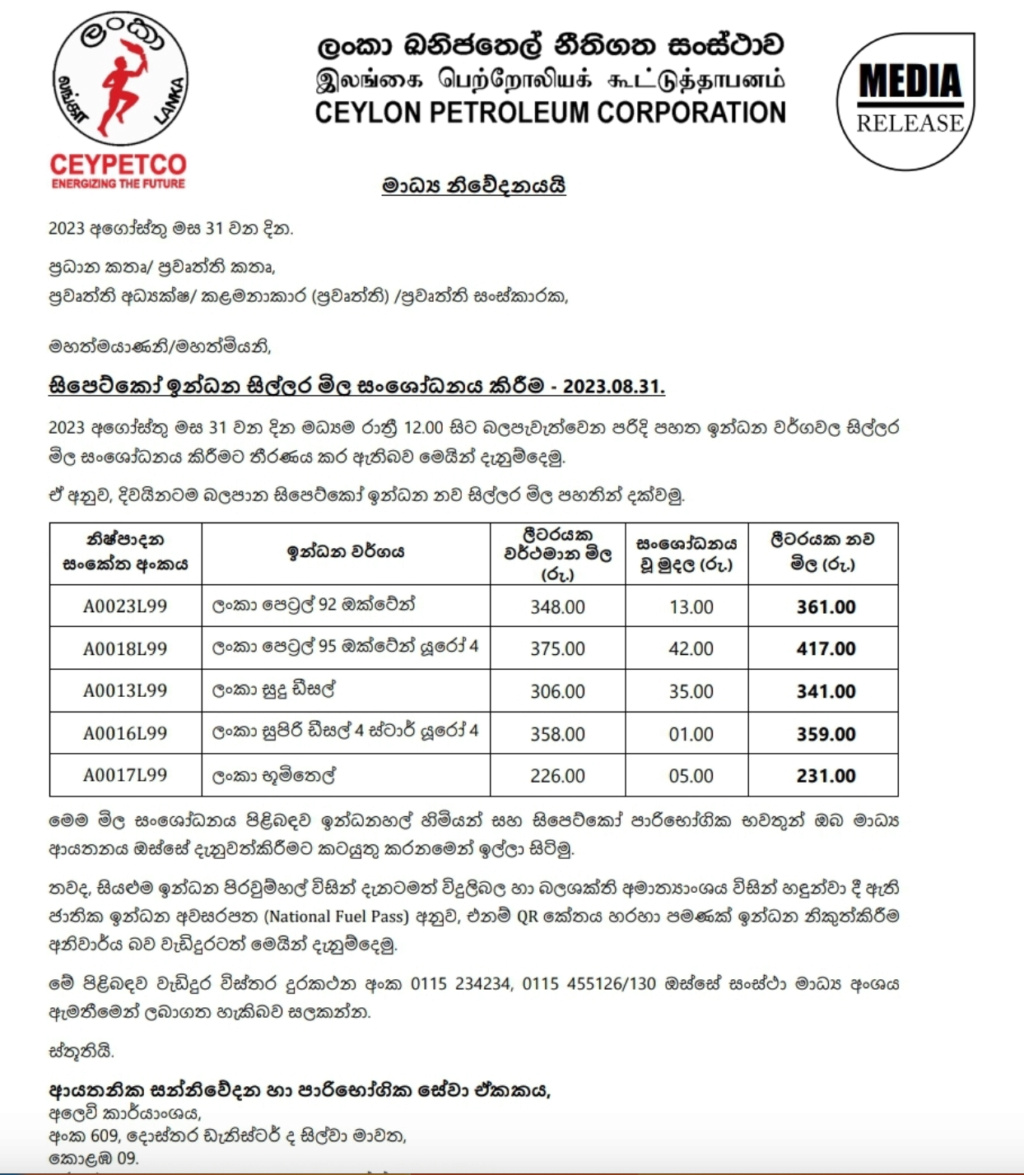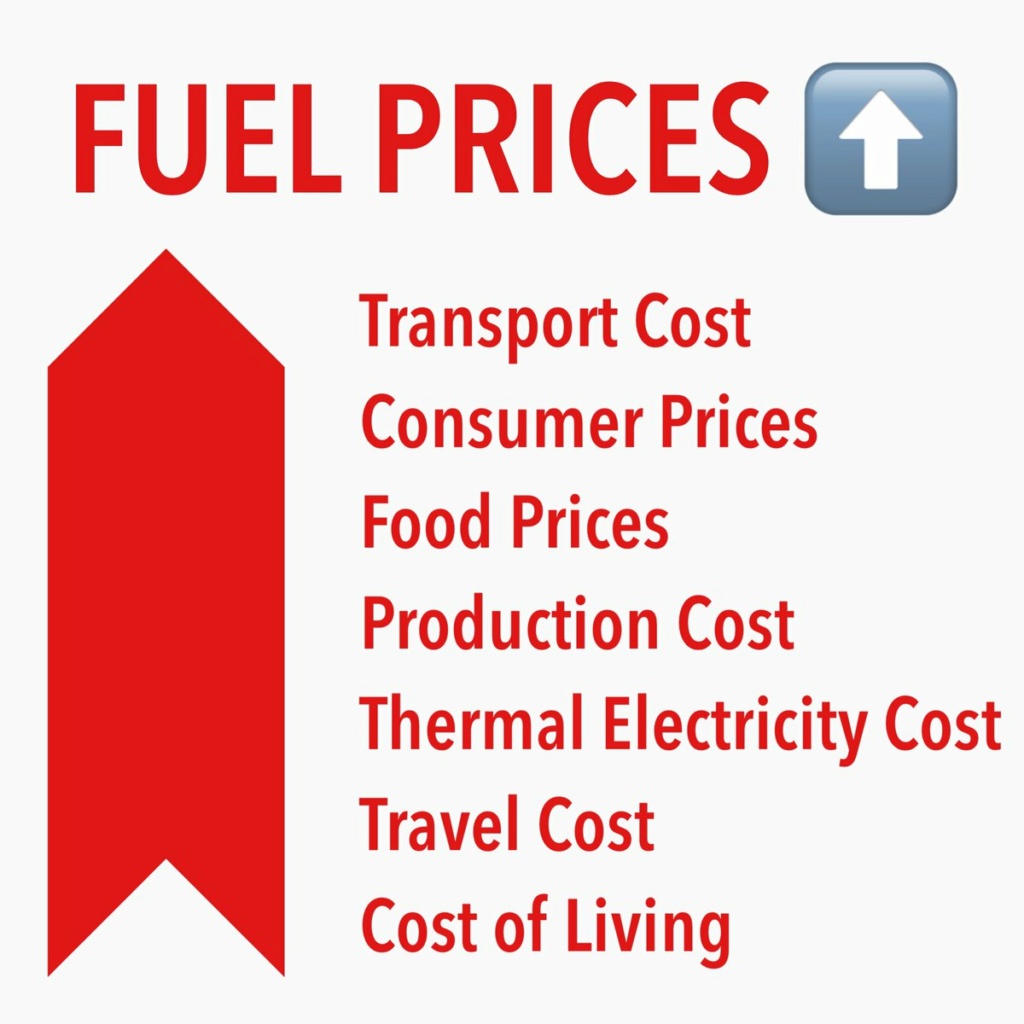Fuel and transport price increases will inevitably flow through to food and other goods, economists said.
Fuel prices were increased with effect from midnight on Thursday (31) August 2023. The Ceylon Petroleum Corporation said a litre of 92 Octane Petrol was increased by Rs.13 to Rs.361.
- A litre of 95 Octane Petrol was increased by Rs.42 to Rs.417.
- A litre of Auto Diesel was increased by Rs.35 to Rs.341.
- A litre of Super Diesel was increased by Rs.1 to Rs.359.
As a result the prices of essentials including vegetables would increase by a significantly greater margin with the rise in diesel and petrol prices due to the chain reaction this would trigger in the supply network. Goods are distributed throughout the country mostly through Fort and Pettah and the rent of lorries used for transport has increased at present. With the increase of fuel prices, transport prices have increased to unreasonable levels. Certainly, with the increase of transport prices by the lorry owners, the wholesale traders will see increased costs, which they will have to pass on to the consumer.
Fuel price increases inevitably drive up production costs.
Farmers typically use motorcycles and petrol vehicles and the petrol price has skyrocketed. Furthermore, vegetable farmers, especially low country vegetable farmers who cultivate crops such as corn, obtain water using water motors. Most of these farms are located in remote areas without a ready supply of electric current, so these farmers are compelled to use diesel or kerosene motors for the purpose. “Big onion cultivators in areas like Sigiriya pump water to their farms over long distances. Some farmers use two machines – one to pump water to a ditch and another to pump water from the ditch to the farm. When these machines require a bigger capacity, they cost more in terms of fuel usage. Accordingly, farmers have to bear these costs in order to supply water to their crops. This is in addition to transport and other costs. “Therefore when the fuel prices increase on top of these other conditions, the farmer is unable to withstand the accumulated costs, since their income is insufficient to cover all these expenses
https://www.themorning.lk/articles/189688

 would enable you to enjoy an array of other services such as Member Rankings, User Groups, Own Posts & Profile, Exclusive Research, Live Chat Box etc..
would enable you to enjoy an array of other services such as Member Rankings, User Groups, Own Posts & Profile, Exclusive Research, Live Chat Box etc.. 
 Home
Home



















